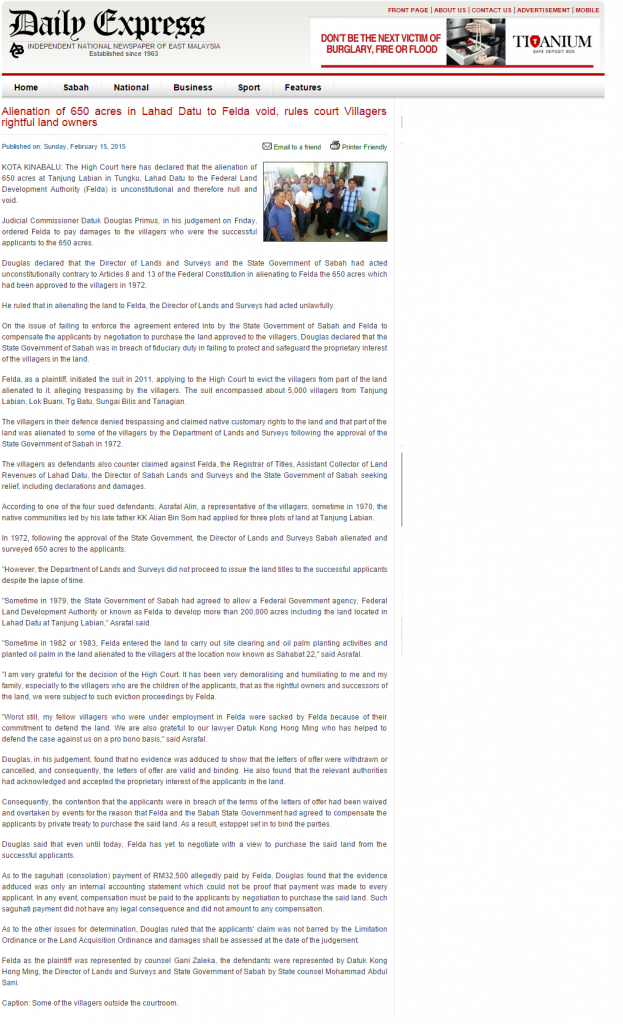KOTA KINABALU: The move by the Environment Protection Department (EPD) in Sabah to unilaterally approve a massive aquaculture project is worrying seven non-governmental organisations here.
The NGOs want greater transparency and public participation in the evaluation of Environmental Impact Assessment (EIA) reports as all projects ultimately affect the people.
They were responding to the EPD director’s recent statement that he was not obliged to refer any matters back to the EIA Review Panel before a final decision is made in approving an EIA.
Datuk Yabi Yangkat had cited Section 12D(1) of the Environment Protection Enactment 2002, which stipulates that the EPD director was empowered to approve an EIA report even if no Review Panel meeting was held.
The NGOs – Sabah Environmental Protection Association (Sepa), Land Empowerment Animals People (LEAP), Indigenous Peoples Network of Malaysia (Joas), Borneo Rhino Alliance (Bora), Sabah Environmental Trust (SET), Save Open Spaces Kota Kinabalu (SOS KK) and Himpunan Hijau – believe EPD is moving backwards by interpreting the law so narrowly.
Sepa president Lanash Thanda said the role of the Review Panel could be considered obsolete, and the concept of public participation undermined.
“The recent statement means that NGO participation in the process is nothing more than a rubber stamping exercise.
“This is a breakdown of social and environmental safeguards as it allows for one authority to approve future EIAs without consultation,” Lanash said.
On Dec 19, EPD approved the EIA for a RM1.23bil shrimp aquaculture project in Pitas, despite an earlier rejection by the Review Panel that included SEPA and WWF-Malaysia.
The department also did not notify the panel members of its decision.
SET Chief Executive Officer Dr Rahimatsah Amat said the EPD’s Handbook on Environmental Impact Assessment in Sabah (2nd Edition) clearly mentions a public hearing and a review panel.
Rahimatsah, who claimed several activities had commenced in the last few years even while the Terms of Reference (TOR) were being discussed, added that this was a breach of section 7(1) of the Environmental Protection (Prescribed Activities) (EIA) Order 2005.
The seven are now seeking an appointment with the State Tourism, Culture and Environment Ministry, under which EPD falls, to discuss procedures and issues related to the EIA process.
The group is also contemplating a public forum to create awareness on environmental issues and the EIA process.
“We are here to ensure that public interest is respected and protected.
“We do not have any other agenda,” Rahimatsah said.
Source: http://www.thestar.com.my/News/Nation/2015/02/22/NGOs-question-EPD-approval-Groups-want-greater-transparency-in-EIA-evaluation-of-Sabah-aquaculture-p/

